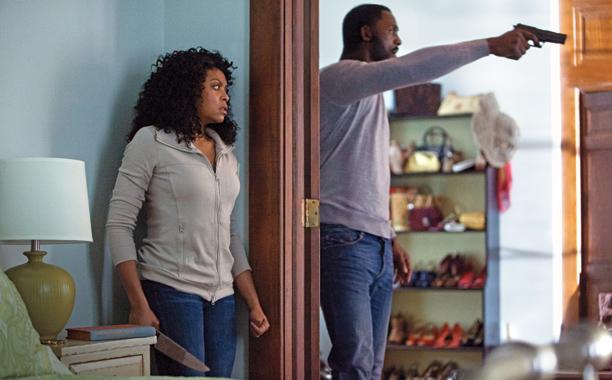Academy Award-winning actor and producer Clint Eastwood links up with Milk producer Dustin Black and fan
favorite Leonardo DiCaprio to portray the interesting life of J. Edgar Hoover
in J. Edgar.
Starring alongside DiCaprio are Armie Hammer (The Social Network), Naomi Watts
(21 Grams) and Josh Lucas (The Lincoln Lawyer). J. Edgar Hoover was a hard-working genius,
but Eastwood shows another side of Hoover that deems him capricious and insecure; a man intently focused
on uncovering the secrets of others, while secretly being possessed by his own.
The movie chronicles Hoover’s rise from being the sixth director of the Bureau of Investigation, to
him being the first director of the FBI, to leaving a mixed but great legacy in American politics and government.
An old Hoover at the end of his illustrious career reveals the details of his and the Bureau’s
rise to prominence to a young writer while dealing with things like John F. Kennedy’s assassination
and clashes with President Nixon who, like a few presidents, wanted Hoover fired from his position.
Hoover also captured most-wanted criminals John Dillinger, Machine Gun Kelly and Alvin Karpis, among many other notable feats which
helped catapult himself and the FBI into national recognition as the go-to organization to protect America domestically.
In the process, Hoover fabricated an image of a tough man with a cold heart to everyone in
America, including himself. While effective in the workplace, his personal life was not as smooth; he never married and struggled with identity issues such as his sexuality and severe insecurity.
He covered up a lot of that with his work, but those who knew him best saw right through it. His right-hand man, associate director of the FBI, Clyde Tolson (Hammer), is portrayed as the man whom Hoover is in love with all along. He does not admit this until just before he retires from the FBI, and his question to Helen Gandy (Watts), his longtime secretary, “Do I kill everything that I love?” lingers in the air and brings the life of J. Edgar Hoover into perspective.
A conversation in which his mother reveals that she would rather have a dead son than a homosexual one shows the vulnerability of Hoover, who lives in his mother’s house his entire life. When she dies, he cross-dresses amidst tears and confusion captures his face.
While DiCaprio delivers a convincing, dramatic performance, the movie as a whole does not flow as well as it should, as the narration jumps
around from the present to the past too much and the storyline is not at all linear.
The focus on Hoover’s sexuality at the end of the movie takes a sharp turn from the political focus of the first half, and ends up attempting to be some sort of love story rather than a biopic of Hoover’s life.
But for those who don’t know much about J. Edgar Hoover and the myths that surround his name, this is a very insightful introduction that not only presents the audiences with the facts, but also offers an interpretation of his struggle, his fears, his dreams and his love.
J. Edgar leaves viewers intrigued about the reality of Hoover’s life, and makes anyone in the audience with a desire to learn more about the remarkably disturbed man.













